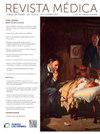La toma de decisiones durante las prácticas clínicas: análisis desde la neuroeducación
IF 0.4
Q4 MEDICINE, GENERAL & INTERNAL
引用次数: 0
Abstract
Introduction
Decision-making during clinical practices involves a series of interrelated mental processes such as working memory, inhibitory control, cognitive flexibility and emotional regulation, which influence the teaching and learning process.
Objective
To analyze the decision-making process in Obstetrics and Childcare students of the Universidad de Antofagasta, Chile during clinical practices in teaching-assistance fields from the neuroeducation.
Method
An exploratory qualitative research was carried out through semi-structured interviews with 16 female students. The narratives were analyzed through grounded theory.
Results
The experiences and knowledge gained allowed the consolidation of the memory and supported correct decisions in front of the patients. Adaptation to new situations, adverse events and critical incidents was conditioned by the teacher's supervision, as well as sustained attention during decision making in real environments. Negative emotions predominated from the beginning and at the end of all decision-making processes.
Conclusion
Since decision-making is a complex process that involves a synergy between working memory, cognitive flexibility, inhibitory control and emotional regulation, independent of temporality, it is therefore advisable to promote teaching based on neuroeducation, because it allows the teacher to understand the mental processes of students, to favor a harmonic educational climate and to strengthen pedagogical skills.
临床实践中的决策制定:神经教育分析
引言 临床实践中的决策涉及一系列相互关联的心理过程,如工作记忆、抑制控制、认知灵活性和情绪调节,这些过程影响着教学和学习过程。结果获得的经验和知识有助于巩固记忆,并支持在病人面前做出正确的决定。对新情况、不利事件和危急事件的适应受到教师监督的制约,在真实环境中做出决策时也需要持续关注。结论由于决策是一个复杂的过程,涉及工作记忆、认知灵活性、抑制控制和情绪调节之间的协同作用,不受时间性的影响,因此,促进基于神经教育的教学是可取的,因为它可以让教师了解学生的心理过程,有利于营造和谐的教育氛围,并加强教学技能。
本文章由计算机程序翻译,如有差异,请以英文原文为准。
求助全文
约1分钟内获得全文
求助全文
来源期刊

Revista Medica Clinica Las Condes
MEDICINE, GENERAL & INTERNAL-
CiteScore
0.80
自引率
0.00%
发文量
65
审稿时长
81 days
 求助内容:
求助内容: 应助结果提醒方式:
应助结果提醒方式:


